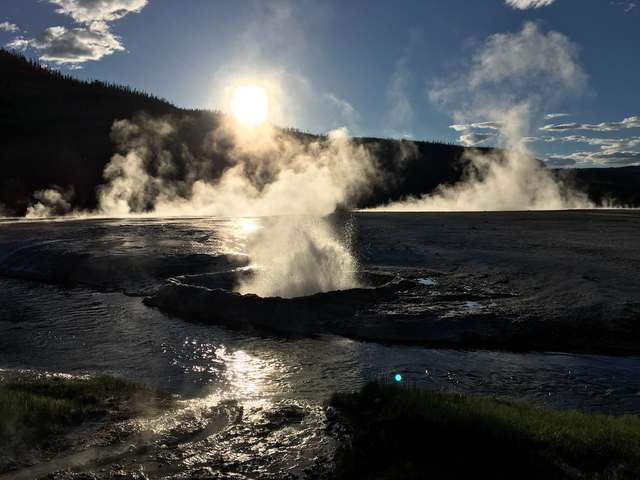Meditations of Robert Green Ingersoll Part Three

“An Equal Right to be Wrong”
I responded to a blog recently where a man mocked divinity schools for instructing professors and students to use gender-neutral words for God. The blogger sneered that this was being “politically correct” and unbiblical. Normally I wouldn’t engage this mean-spirited ignorance, but I wrote that the intense dislike some people have for what they label PC is often merely a demand that we all be RC: “religiously correct.” Being sensitive and enlightened enough to use inclusive language has been taught in progressive seminaries for a long time. By the way, if someone’s deity has genitals, well, how is it that, according to Genesis, “male and female” were both created in the image of God?
So much of this is pointless, I admit. But I relate this story because language matters—our words reveal the ways we exclude whole groups of people from civic life and full equality. In other words, words reflect our actions. What we speak builds defended walls or opens new bridges to progress.
Ingersoll seems to have considered this and was careful to emphasize his delightful brand of heresy by repeating irritating words like “equality,” “naturally,” “freedom,” “rights” and “progress.” Keeping in mind that he was also a man, and a man of his time, he was an orator who used words to shape ideas and minds for a wider ethical purpose.
In this passage, the Great Agnostic asks, in effect, why get in the way of inclusion and equality? When “reason enters the arena” of public life, glass ceilings and superstitions break apart and “greater freedom” lift us all.
I leave it to the reader to trace any parallels with the present American political landscape.

"I think the influence of women is always good in politics, as in everything else. I think it the duty of every woman to ascertain what she can in regard to her country, including its history, laws and customs. Woman above all others is a teacher. She, above all others, determines the character of children; that is to say, of men and women.
There is not the slightest danger of women becoming too intellectual or knowing too much. Neither is there any danger of men knowing too much. At least, I know of no men who are in immediate peril from that source. I am a firm believer in the equal rights of human beings, and no matter what I think as to what woman should or should not do, she has the same right to decide for herself that I have to decide for myself. If women wish to vote, if they wish to take part in political matters, if they wish to run for office, I shall do nothing to interfere with their rights. I most cheerfully admit that my political rights are only equal to theirs.
There was a time when physical force or brute strength gave pre-eminence . . . As long as nations depend simply upon brute force, the man, in time of war, is, of necessity, of more importance to the nation than woman, and as the dispute is to be settled by strength, by force, those who have the strength and force naturally settle it. As the world becomes civilized, intelligence slowly takes the place of force, conscience restrains muscle, reason enters the arena, and the gladiator retires.
A little while ago the literature of the world was produced by men, and men were not only the writers, but the readers. At that time the novels were coarse and vulgar. Now the readers of fiction are women, and they demand that which they can read, and the result is that women have become great writers. The women have changed our literature, and the change has been good.
 In every field where woman has become a competitor of man she has either become, or given evidence that she is to become, his equal. My own opinion is that woman is naturally the equal of man and that in time, that is to say, when she has had the opportunity and the training, she will produce in the world of art as great pictures, as great statues, and in the world of literature as great books, dramas and poems as man has produced or will produce . . .
In every field where woman has become a competitor of man she has either become, or given evidence that she is to become, his equal. My own opinion is that woman is naturally the equal of man and that in time, that is to say, when she has had the opportunity and the training, she will produce in the world of art as great pictures, as great statues, and in the world of literature as great books, dramas and poems as man has produced or will produce . . .
In short, I have no prejudice on this subject. At first, women will be more conservative than men; and this is natural. Women have, through many generations, acquired the habit of submission, of acquiescence. They have practiced what may be called the slave virtues—obedience, humility—so that some time will be required for them to become accustomed to the new order of things, to the exercise of greater freedom, acting in accordance with perceived obligation, independently of authority.
So I say equal rights, equal education, equal advantages. I hope that woman will not continue to be the serf of superstition; that she will not be the support of the church and priest; that she will not stand for the conservation of superstition, but that in the east of her mind the sun of progress will rise.”
from Woman in Politics, Interview with the New York Commercial Advertiser, December, 1893.
Recommended
Nor’easter
Post-Op Appointment With My Father
Cedar Valley Youth Poet Laureate | Fall 2024 Workshop





